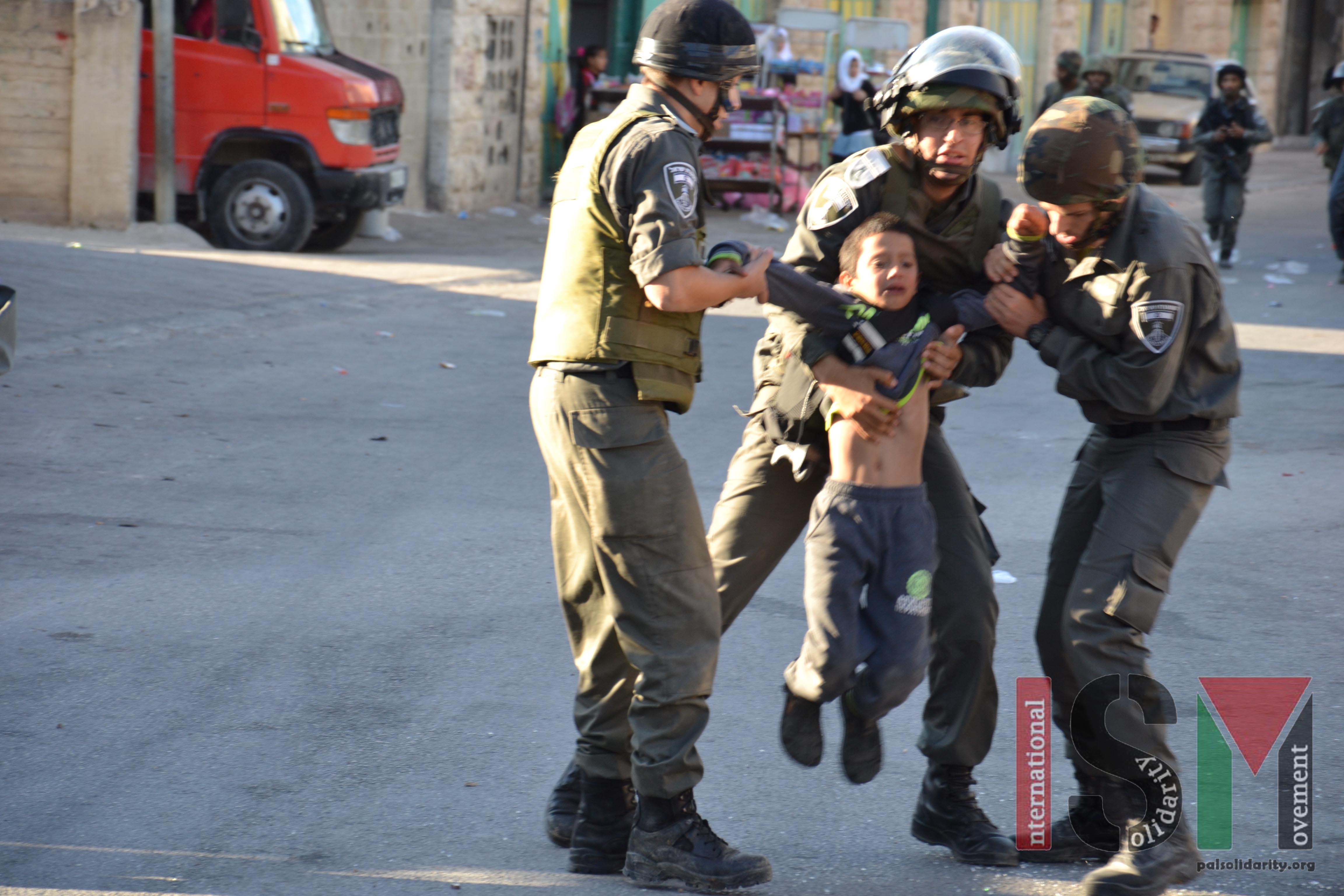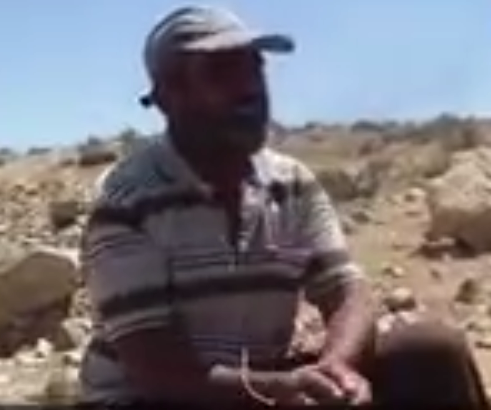Tag: Detention
-
Israeli military beat and detain young men in Hebron
23rd November 2014 | International Solidarity Movement, Khalil | Hebron, Occupied Palestine Yesterday evening Israeli forces beat and detained young Palestinians on Tel Rumeida hill in al-Khalil (Hebron). A twenty-two-year-old man was taken from the scene by an ambulance. Four others between the ages of eighteen and twenty-four were handcuffed and detained in a military…
-
VIDEO: Seven-year-old violently detained, one child and two adults arrested
8th September 2014 | International Solidarity Movement, Khalil Team | Hebron, Occupied Palestine This morning in al-Khalil (Hebron), through the Salaymeh checkpoint, a seven-year-old was forcefully detained and three more were arrested, including another child. At 07:40, approximately six young children started throwing small stones towards the checkpoint. A few minutes later a group of Israeli border…
-
VIDEO: Palestinian shepherd detained by Israeli soldiers
29th June 2014 | Operation Dove | Saddith Thala, Occupied Palestine On June 27th, Israeli soldiers detained a Palestinian shepherd from the South Hebron Hills village of Saddith Thala. He was accused of throwing stones towards a setter’s car, passing on the Bypass road 317. He was released, as there was no evidence to support the charges. A…



